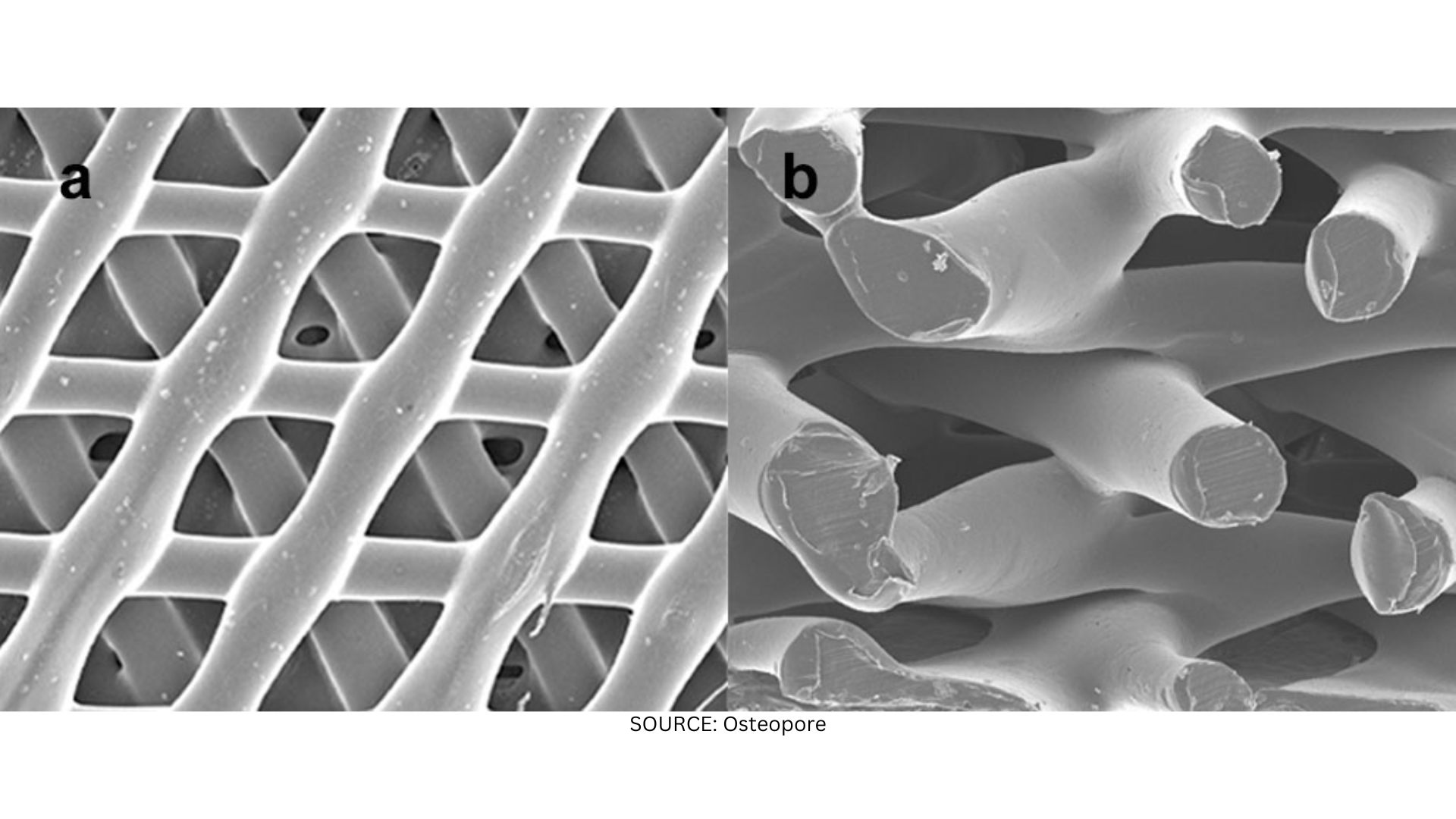
SINGAPORE/November 8, 2022 — Osteopore International, a Singapore- and Australia-based med-tech company, focusing on facilitating natural tissue regeneration, is primed for the global limelight after quietly developing and commercializing its novel 3D-printed bioresorbable scaffold implants that have the potential to revolutionize the way surgeons help patients to naturally regrow bones and other tissues.
Osteopore leverages technology that has been researched and developed in Singapore and its patent-protected 3D-printed scaffold implants use a bioresorbable material to mimic the complex and inter-connected microstructure of bones to enable the natural stages of bone healing. The implants dissolve harmlessly over time in the patient’s body leaving behind only healthy bone without the need for any artificial implants.
OSX Executive Chairman Mark Leong said, “OSX’s deeply passionate team has great chemistry combined with the complementary skill sets and experience necessary to be a truly global player. We have harnessed our superior technology and endeavor to be the standard of care globally for natural tissue regeneration with a clear vision to become the world’s most valuable regenerative medical device company. Our technology improves clinical outcomes and patient quality-of-life while reducing overall healthcare costs and we have reached a crucial inflection point with our global expansion strategy through further regulatory access and developing a new pipeline of products and technology enhancements.”
OSX’s exciting and groundbreaking tissue regeneration technology is not exactly a nascent technology. It has more than 10 years of clinical data and has been used in over 60,000 successful procedures globally with superior results over traditional procedures. With regulatory clearances in key markets including with the FDA in the United States, Europe’s CE mark, Australia’s TGA and Singapore’s HSA, among many others, OSX has distributors in over 20 countries spanning every continent.
OSX’s geographical focus will be the United States and China, the two biggest markets globally. In August 2022, reaching a landmark milestone of penetrating the US market, OSX announced that its US distributor secured an agreement which will see OSX products sold to the US federal government’s Veteran’s Affairs Medical Centers with 175 hospitals across the country. In the same month, OSX moved one step closer to the China market after signing a distributor deal to commence the registration process with China’s National Medical Products Administration (NMPA) to facilitate the marketing and sales of OSX products across mainland China.
OSX implants can replace permanent implants such as metal/plastic implants, which tend to have higher rates of infection and complications, as well as bone grafts. The effects of OSX implants are lower post-surgery infection and complication rates which result in better patient outcomes and lower overall medical costs thanks to a decreased need for follow-up surgeries.
Its unique proprietary 3D printing system enables implants to be standard off-the-shelf or customised specifically for individual patient’s needs. Taking advantage of latest initiatives such as industry 4.0 and AI design, the production process is efficient and sustainable with minimal wastage compared to other manufacturing processes.
OSX listed on Australia’s ASX three years ago and has collaborated with renowned Australian surgeon Dr. Michael Wagels using OSX implants to perform three surgeries that were world firsts. One surgical procedure involved facilitating the regrowth of a patient’s 36cm shin bone, remarkable not only for its sheer length but the fact that it is a load-bearing bone.
OSX is accessing huge addressable markets and currently holds key regulatory clearances for the craniofacial market, tapping into the multi-billion dollar bone graft and permanent implant sectors. OSX is accelerating the development of more applications and gaining further regulatory clearances in the dental, oral maxillofacial, orthopaedic, and aesthetic space, making its tissue regeneration technological solutions available to a wider spectrum.
To ensure its position at the frontier of the tissue regeneration space, OSX is exploring various partnerships and acquisitions. Beyond facilitating the body’s own regenerative ability to regrow its own bone and tissue, OSX is also working on the next generation of products to accelerate regrowth, the holy grail of tissue regeneration.
OSX has considerably more in the pipeline as it works towards increasing its clinical data to regenerate cartilage and tendons which will create a whole new range of solutions for widespread issues from sports injuries to helping with the aging process. With a treasure trove of existing animal data, OSX is seeking options to deploy its hard and soft tissue regeneration technology in veterinary markets to treat pets and animals.


